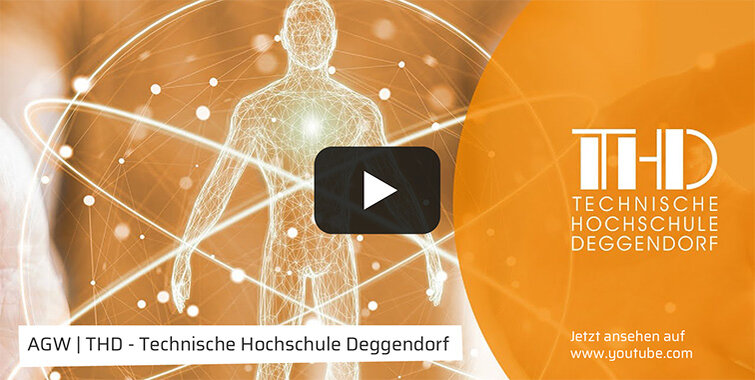Take on the Highest Responsibility in Rescue Services
with a Degree in Management in Rescue Services (B.Sc.)
#count%
of all dit graduates
will find a job
within 2 months

Time for Change in Rescue Services: Leading with Responsibility in Management
#management #rescueservice #emergencycare #crisismanagement #disastermanagement
#healthpolicy #socialpolicy #businessadministration #ethics #careresearch
Are you passionate about rescue services and eager to shape the organisation and coordination of emergency medical care for people in crisis, preparing them for future challenges? Enhance your expertise and practical experience as a qualified paramedic with a Bachelor's degree in Management in Rescue Services. This programme will qualify you as a specialist and leader in rescue service management, enabling you to address industry-specific issues with precision and knowledge. Become a link between direct care work for people in emergency situations and operational and strategic management. Play a key role in shaping the possibilities for optimising acute care for patients and work hand in hand with various stakeholders with specialist, medical, economic, administrative and representative functions
Our programme provides you with comprehensive management skills tailored to rescue services, building directly on your knowledge as a paramedic. The best conditions for optimum emergency medical care... and your career in rescue services.
management in rescue services Profile
Degree: Bachelor of Science (B.Sc.)
Standard study period: 7 Semester
ECTS-Credits: 210
Skills acquired during the training as a paramedic will be recognised with up to 52 ECTS credits in accordance with Article 86, Paragraph 2 of the BayHIG.
Start of study programme: Winter semester
Location: Deggendorf
Teaching language: German, English in the Professional English module
Application period: 15 April - 15 September
Eligibility requirements:
- Qualification requirements in accordance with the Bavarian Higher Education Act of 23 May 2006 (GVBI. S. 245) and the Regulation on Qualifications for Studies at the Universities of the Free State of Bavaria and the State-Recognised Non-State Universities (Qualifications Regulation – QualV) of 2 November 2007 (GVBI. 2007, S. 767) in the respective version, and
- training as a state-recognised paramedic or comparable qualifications. The examination board decides on the equivalence of qualifications. Proof is provided by presenting the certificate of completion.
- Language Requirements
Prerequisites: Knowledge from vocational training as a paramedic.
Continuing study programmes:
- Master Digital Health
- Master Global Public Health
- Master Human Resource Management
- Master Mental Health
- Master Life Science Informatics
- Master Strategic and International Management
- MBA General Management (Further Education)
Student union fee:
- No tuition fees, only student union fee
- International students from non-EU/EEA countries are required to pay service fees for each semester. Click here to read about our service fees.
Contact:
- Information about the study programme: Prof. Dr. phil. Susanne Katharina Heininger
- General information about studying at DIT: Advice & support
- Information for first semester
career prospects
The combination of vocational training and academic studies provides you with a broad knowledge base for leadership roles in rescue service organisations, control centres, or aid organisations.
This blend of technical and management skills qualifies you to take on senior tasks across the entire field of rescue services, competently implement projects, and apply scientifically grounded expertise in practice. Develop transparent and comprehensible solutions for complex issues based on scientific principles and methodological skills. Utilise specific management skills to consider economic, health, and social policy factors. Integrate technological, communicative, sustainability, and environmental aspects to form an independent, analytical, and well-founded perspective on rescue services within the complex health and social system. Act responsibly and sustainably in ethically challenging decision-making situations.
Course Structure
The Bachelor's programme in Management in Rescue Services covers seven semesters. In addition to university qualifications, you must have completed training as a state-recognised paramedic or a comparable vocational training. Skills acquired during training can be easily recognised. With proper organisation, it is possible to pursue a professional career alongside your studies. The training can also be completed in parallel with the degree. The admission requirements and the study and examination regulations apply.
programme content
Overview about the courses, SWS (semester hours per week) and ECTS (European Credit Transfer and Accumulation System) in the Bachelor of Management in Rescue Services degree programme.
Marked with *: Credits from the training as a state-recognised paramedic or comparable qualifications can be transferred.
|
1. Semester |
SWS | ECTS |
| Psychosocial Skills
|
4 | 5 |
| Anatomy and Physiology*
|
4 | 5 |
| General Pathology*
|
4 | 5 |
| Academic Work and Research Methodology
|
4 | 5 |
| System Theoretical Foundations
|
3 | 5 |
| Terminology* | 3 | 5 |
|
2. Semester |
SWS | ECTS |
| Statistics & Mathematics | 4 | 5 |
| Basics of Business Administration
|
4 | 5 |
| Professional English
|
4 | 5 |
| Basics of Emergency Medicine*
|
4 | 5 |
| General Legal Principles*
|
4 | 5 |
| Health and Social Policy Framework Conditions
|
3 | 5 |
|
3. Semester |
SWS | ECTS |
| Special Rescue Service Law
|
4 | 5 |
| Digitalisation in Rescue Services
|
3 | 5 |
| Human Resource Management and Development
|
4 | 5 |
| Patient Management*
|
4 | 5 |
| Basics of Economics
|
3 | 5 |
| Ethics & Sustainability*
|
4 | 5 |
|
4. Semester |
SWS | ECTS |
| Advanced Legal Principles
|
4 | 5 |
| Research and Science in Rescue Services
|
3 | 5 |
| Deployment Planning and Coordination*
|
4 | 5 |
| Corporate Management and Organisation
|
4 | 5 |
| Safety and Health at Work
|
3 | 5 |
| Sustainability & Compliance
|
3 | 5 |
|
5. Semester |
SWS | ECTS |
| Financing & Structures of Rescue Services
|
4 | 5 |
| Cross-Border/International Rescue Service Systems
|
3 | 5 |
| Pharmacology and Medication Management in Rescue Services
|
4 | 5 |
| Quality Management
|
2 | 5 |
| Project Management | 3 | 5 |
| Crisis and Disaster Management
|
2 | 5 |
|
6. Semester |
SWS | ECTS |
| Internship | 4 | 30 |
|
7. Semester |
SWS | ECTS |
| Psychosocial Emergency Care
|
4 | 5 |
| Interprofessional Work in the Health System
|
4 | 5 |
| Leadership Responsibility and Mental Health
|
4 | 5 |
| Bachelor Thesis
|
11 | |
| Bachelor Seminar | 2 | 2 |
| Operator of Emergency Rescue and Patient Transport Services
|
2 | 2 |




